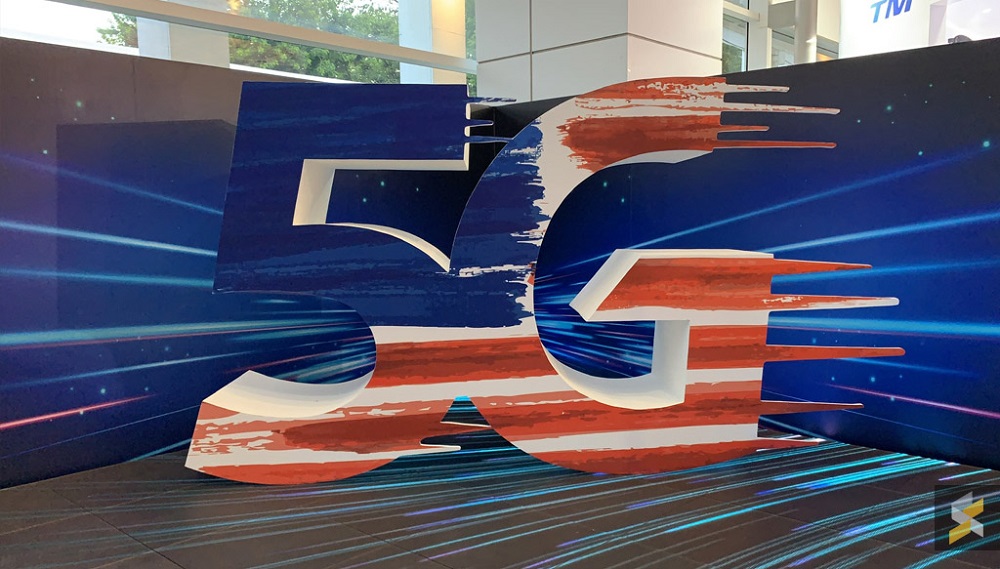KUALA LUMPUR, June 3 — The Minister of Communications and Multimedia has recently assigned the 700MHz spectrum to five individual companies namely Altel, Celcom, Digi, Maxis and TM. The move was quite a surprise as the designated 5G bands of 700MHz and 3.5GHz was initially planned to be assigned to a consortium through a bidding process.
The Covid-19 factor
According to industry sources, the Covid-19 pandemic has slowed down the progress of 5G rollout globally and Malaysia needs to ensure that 5G deployment is on track for third quarter 2020. It is said that 5G would be critical to boosting the local economy as it will create new jobs and opportunities in the new normal where digitalisation is crucial.
5G services are expected to play a pivotal and even critical role to facilitate economic recovery as well as to ensure economic resilience moving forward. According to MIER, 5G is expected to spur RM12.7 billion in investments and create 39,000 jobs between 2011 to 2025.
Consortium approach no longer viable?
Some industry players believe that a single 5G consortium model needs to relook into and questioned if the approach is viable in the current situation. Some have raised concerns about competition and the risk associated with a single entity undertaking the entire nation’s 5G infrastructure.
They are concerns on the ability for collaboration between members of the consortium that may have competing interests. It is also highlighted that the approach may not necessarily be sustainable without impacting consumers, businesses and the government if it is controlled by a single consortium.
Most importantly, they questioned if a having consortium will allow fast decision making to ensure faster implementation. They emphasised the importance of fast rollout and suggested a direct award of the spectrum to telcos could be a better approach.
Telcos are affected by Covid-19
In the first quarter of the year, corporate earnings from 172 companies in Malaysia have shown a 55 per cent year-on-year decline with 69 per cent has reported a quarter-to-quarter drop. It is estimated that total losses from MCO is around RM63 billion.
The big three telco groups in Malaysia are also not spared by the impacts of the pandemic. Axiata had posted a 74.1 per cent decline in net profit (From RM725.17 million to RM188.11 million) for the quarter ending March 31, while Digi reported a 2.78 per cent drop in profit (RM341.5 million to RM332 million) for the same period. Maxis has recorded higher revenue at RM2.34 billion (from RM2.23 billion) but its profits fell from RM409 million to RM358 million for Q1 2020.
During the MCO, most telcos have offered free mobile data daily to support Malaysians during this challenging time. During the initial announcement, the initiative would cost telcos RM600 million but it is expected to cost telcos even more since the MCO has been extended until the 9th of June. With more people staying at home, people are also less likely to spend more on data. In addition, the telcos are also investing RM400 million to improve its network to support the growing demand for data.

Why was a consortium proposed in the first place?
When MCMC announced the 5G spectrum bands on January 1, most people were surprised that it will be assigned to a single entity. The 700MHz and 3.5GHz spectrum will be allocated to a consortium while the higher 26GHz and 28GHz bands will be assigned directly to licensees for nationwide usage and non-licensees for localised private networks.
During the time, a consortium was recommended as it was believed that individual telcos do not have the financial capacity to invest in 5G. It was estimated that RM7-8 billion is required for a proper deployment but the CAPEX by telcos has gone down. Malaysians telcos are spending 11 per cent of their revenue into the network while the global industry average is 17-18 per cent of revenue.
In addition to investing in 5G, the telcos are also required to invest in their existing 4G networks. It was shared that Malaysia’s 4G network performance is still below expectation and there are independent stats to show that Malaysia is behind Vietnam and Thailand.
Telcos will also need to invest more into fiberisation of its mobile tower before we even talk about 5G. It is estimated that only 40 per cent of towers in Malaysia are connected via fibre which is partly the reason why 4G isn’t great for a lot of users. To make matters worse, some telcos still don’t support Voice over LTE (VoLTE) which is a prerequisite for 5G.
In a nutshell, telcos are already struggling to roll out 4G properly and for telcos to roll out 5G themselves would be a monumental task. The consortium was supposed to address these issues to ensure Malaysia doesn’t get a half-baked 5G implementation as there will be a coordinated effort to reduce network duplication and to save cost.
Questions that need to be answered
Perhaps it is too ambitious to think that the consortium would be the best approach and there are valid concerns of whether a fair collaboration is possible between telcos. However, the Ministry of Communications and Multimedia needs to be transparent with its decision when it comes to spectrum assignment.
Why are there only five players receiving 700MHz? Why some received 10MHz blocks while others are getting 20MHz? What is the criteria for getting the spectrum? Why existing 4G LTE players such as U Mobile and YTL are not included? How will the authorities ensure telcos are using the spectrum efficiently and most importantly, users are getting quality and affordable 5G experience? — SoyaCincau



















